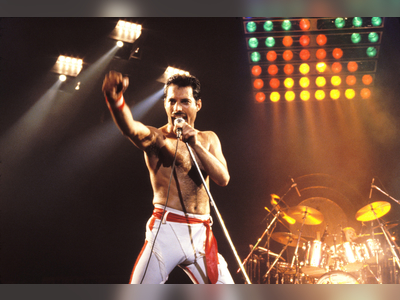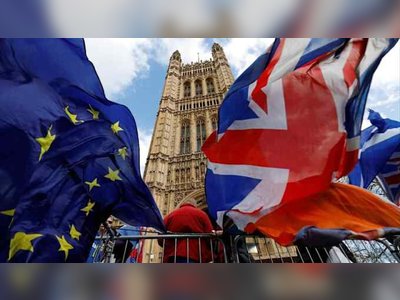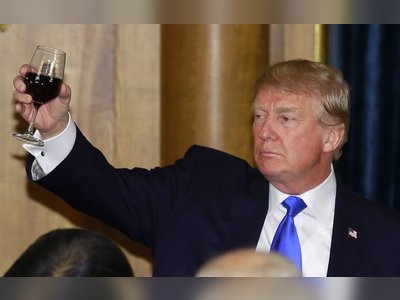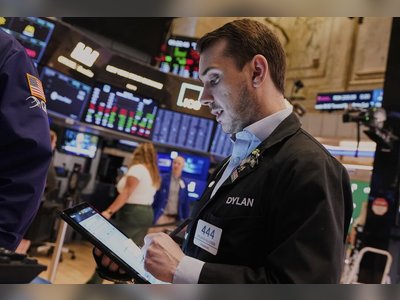Elon Musk's Increasing Influence on European Politics Sparks Controversy
A closer look at the actions of Tesla's CEO intertwined with far-right politics in the EU.
Elon Musk, the charismatic and often controversial CEO of Tesla, has found himself at the center of a political firestorm in Europe.
After his acquisition of Twitter, now rebranded as X, Musk has been increasingly involved in actions perceived as supportive of far-right political movements across Europe, drawing parallels to Russian interventions in Western democratic processes.
Since Musk took over Twitter in October 2022, he has notably reinstated accounts of right-wing figures previously banned by the platform.
Among them is Martin Sellner, the founder of the Austrian Identitarian Movement, linked to extremist acts, including connections to the 2019 mosque shootings in Christchurch, New Zealand.
Controversy further mounted when Musk allowed the return of the leader of Australia's National Socialist Network on the platform.
Although these actions have caused ripples, Musk's recent overtures toward political figures, notably after being named as an advisor to upcoming U.S. President Donald Trump, are drawing even greater scrutiny.
Critics argue that Musk is flouting basic principles of diplomacy and political correctness, particularly concerning the European Union's unified voice.
Marietje Schaake, a researcher at Stanford University and an advocate of democratic processes, voiced concerns in an article for El País.
She noted Musk's financial and social media clout as potential tools for supporting nationalist far-right leaders.
Musk's actions and statements have sparked comparisons to Russian interference, using similar strategies in leveraging American tech companies' business models.
European leaders have taken notice.
Just weeks after the U.S. presidential election, Musk disparaged the newly approved European Commission as 'undemocratic,' underscoring tensions with EU regulatory frameworks, which aim to balance member states' power and preserve harmony within the union.
Notably, late in 2024, Musk targeted the UK's Labour government, led by Prime Minister Keir Starmer, labeling it a 'tyrannical police state' and called for immediate general elections.
Such comments stirred the political pot further in nations like Germany, where Musk encouraged votes for the far-right Alternative for Germany (AfD) party.
His influence has reached such a point that even European officials are cautioning against external meddling.
Germany's President Frank-Walter Steinmeier rebuffed Musk's commentary with a reminder of democratic principles, even as Musk described him derogatively.
Olaf Scholz, Germany's Chancellor, dismissed Musk with a simple yet poignant quip.
Despite skepticism regarding Musk's impact on German voters' behavior, political analyst Thorsten Benner from the Global Public Policy Institute warns of the strategic significance of Musk’s partnership with local media outlets like Die Welt.
There's speculation that Berlin might impose stricter regulations on Musk's platform, signaling governmental concerns over external propaganda swaying public opinion.
In a broader context, Musk's comments arrive ahead of a pivotal election year in 2025, with major European countries, including Germany and Romania, heading to the polls.
Observers are keen to see how Musk’s influence might intersect with nationalist sentiments emerging across Europe.
Acting ahead of the coming American administration, Musk voiced support uniquely for Italian Prime Minister Giorgia Meloni, indicating selective political alliances that could shape diplomatic engagements with Europe's progressive leaders, such as Emmanuel Macron.
As the conversation around technological influence on politics intensifies, Musk's activities demonstrate the growing intersection of business leadership, technology platforms, and global political currents.
How his role evolves could have lasting ramifications for both European and global democratic landscapes.
After his acquisition of Twitter, now rebranded as X, Musk has been increasingly involved in actions perceived as supportive of far-right political movements across Europe, drawing parallels to Russian interventions in Western democratic processes.
Since Musk took over Twitter in October 2022, he has notably reinstated accounts of right-wing figures previously banned by the platform.
Among them is Martin Sellner, the founder of the Austrian Identitarian Movement, linked to extremist acts, including connections to the 2019 mosque shootings in Christchurch, New Zealand.
Controversy further mounted when Musk allowed the return of the leader of Australia's National Socialist Network on the platform.
Although these actions have caused ripples, Musk's recent overtures toward political figures, notably after being named as an advisor to upcoming U.S. President Donald Trump, are drawing even greater scrutiny.
Critics argue that Musk is flouting basic principles of diplomacy and political correctness, particularly concerning the European Union's unified voice.
Marietje Schaake, a researcher at Stanford University and an advocate of democratic processes, voiced concerns in an article for El País.
She noted Musk's financial and social media clout as potential tools for supporting nationalist far-right leaders.
Musk's actions and statements have sparked comparisons to Russian interference, using similar strategies in leveraging American tech companies' business models.
European leaders have taken notice.
Just weeks after the U.S. presidential election, Musk disparaged the newly approved European Commission as 'undemocratic,' underscoring tensions with EU regulatory frameworks, which aim to balance member states' power and preserve harmony within the union.
Notably, late in 2024, Musk targeted the UK's Labour government, led by Prime Minister Keir Starmer, labeling it a 'tyrannical police state' and called for immediate general elections.
Such comments stirred the political pot further in nations like Germany, where Musk encouraged votes for the far-right Alternative for Germany (AfD) party.
His influence has reached such a point that even European officials are cautioning against external meddling.
Germany's President Frank-Walter Steinmeier rebuffed Musk's commentary with a reminder of democratic principles, even as Musk described him derogatively.
Olaf Scholz, Germany's Chancellor, dismissed Musk with a simple yet poignant quip.
Despite skepticism regarding Musk's impact on German voters' behavior, political analyst Thorsten Benner from the Global Public Policy Institute warns of the strategic significance of Musk’s partnership with local media outlets like Die Welt.
There's speculation that Berlin might impose stricter regulations on Musk's platform, signaling governmental concerns over external propaganda swaying public opinion.
In a broader context, Musk's comments arrive ahead of a pivotal election year in 2025, with major European countries, including Germany and Romania, heading to the polls.
Observers are keen to see how Musk’s influence might intersect with nationalist sentiments emerging across Europe.
Acting ahead of the coming American administration, Musk voiced support uniquely for Italian Prime Minister Giorgia Meloni, indicating selective political alliances that could shape diplomatic engagements with Europe's progressive leaders, such as Emmanuel Macron.
As the conversation around technological influence on politics intensifies, Musk's activities demonstrate the growing intersection of business leadership, technology platforms, and global political currents.
How his role evolves could have lasting ramifications for both European and global democratic landscapes.
AI Disclaimer: An advanced artificial intelligence (AI) system generated the content of this page on its own. This innovative technology conducts extensive research from a variety of reliable sources, performs rigorous fact-checking and verification, cleans up and balances biased or manipulated content, and presents a minimal factual summary that is just enough yet essential for you to function as an informed and educated citizen. Please keep in mind, however, that this system is an evolving technology, and as a result, the article may contain accidental inaccuracies or errors. We urge you to help us improve our site by reporting any inaccuracies you find using the "Contact Us" link at the bottom of this page. Your helpful feedback helps us improve our system and deliver more precise content. When you find an article of interest here, please look for the full and extensive coverage of this topic in traditional news sources, as they are written by professional journalists that we try to support, not replace. We appreciate your understanding and assistance.











